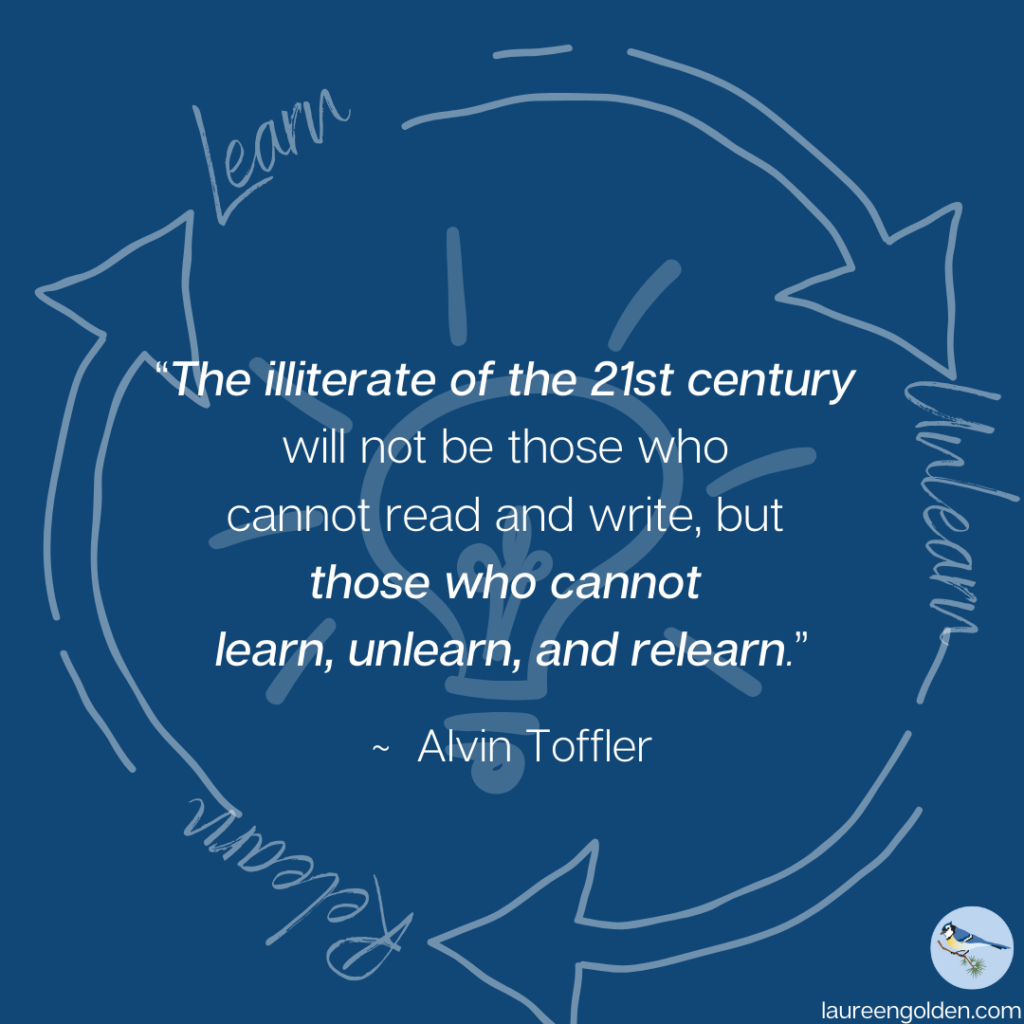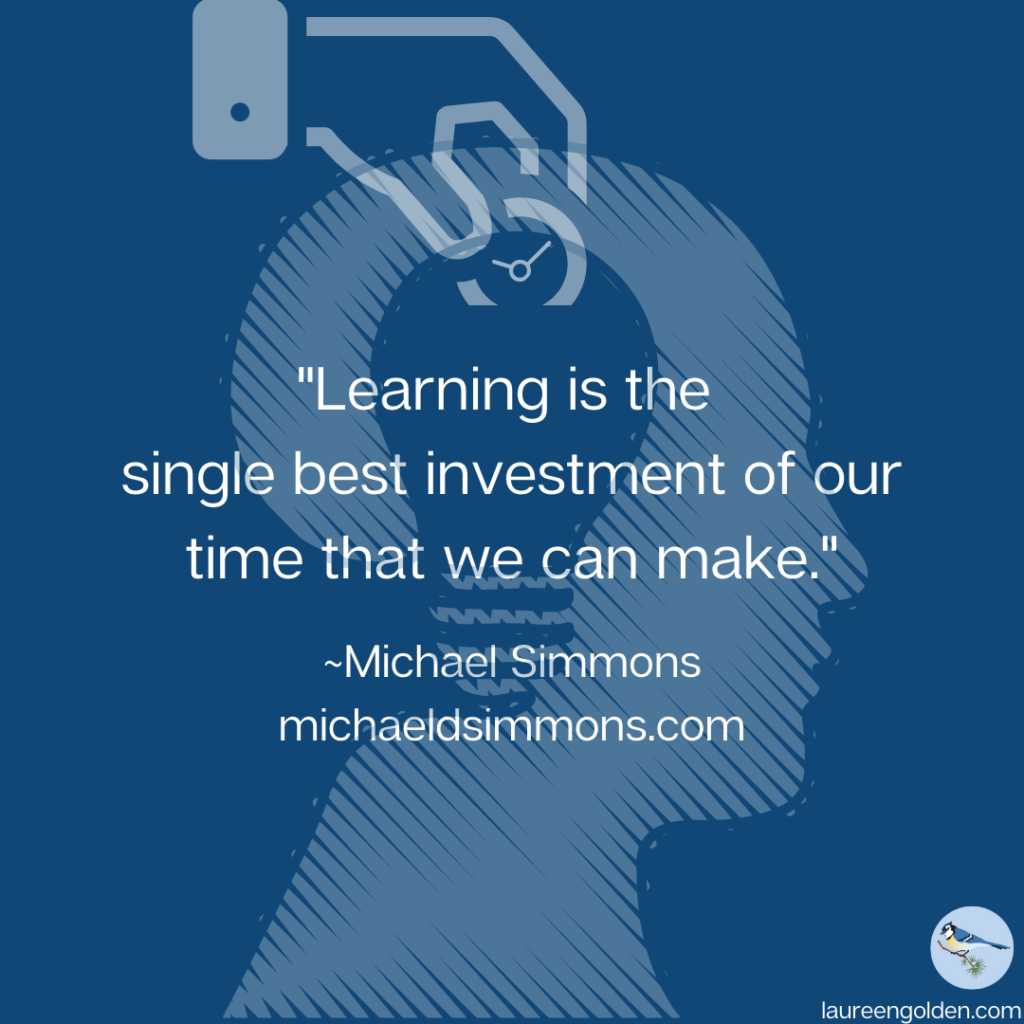
Happy Friday!!! This week we’re explored “learning” which some suggest is “the single best investment of our time we can make.”[1] Let’s close this week’s series by including the complementary processes of unlearning and relearning.
Why unlearning and relearning? We live within a time of great change. A seismic shift is occurring, delineating the edges of a world that once was and a new world that is coming into being. What this means is that most of what we’ve been taught is relevant to “a world that no longer really exists.“[1]
And many of us are finding that when we apply “old world” ways of operating to our “new world” context, our efforts are often rendered not only ineffective, but sometimes even detrimental (causing unintended consequences).
Take, for example, how many of us were taught that when things aren’t going well we should just buckle down and try harder. While that is effective in some situations, in others, trying harder doing the same thing only causes us to get more of what we don’t want.
Therefore, in this new context, confidence and decisiveness remain valuable, but they’re most effective when paired with humility and inquiry.
- When we decide and act, are we clear on our intentions?
- Do we actively seek out feedback on our impact?
- If there’s a discrepancy between our intentions and impact, are we willing to take responsibility and repair?
- Will we allow ourselves to let go of what we think we know (unlearning) and explore with others how we might do things differently going forward (ie, relearning)?
The process of unlearning and relearning is not for the faint of heart (many of us have learned that our performance and perfection is required for acceptance, so facing areas where we feel ineffective can trigger a vicious spiral of shame), nor is it something we can really do alone (we need the feedback and support of others to learn more effective ways of being in this new world and with each other).
[If you are looking for a framework to help you learn, unlearn, and relearn, check out The Developmental Edge’s Invitational Sprint, based on Kegan and Lahey’s work on Immunity to Change. I did it in March and found it so powerful, I’m doing it again this month. Let me know if you want to join me (it begins on Tuesday!). Shout out to Bernadette Wesley for connecting me to the work of The Developmental Edge!]
[1] Michael Simmons, “If You’re Not Spending Five Hours Per Week Learning, You’re Being Irresponsible“
[2] This phrase is from one of my favorite quotes from Maureen O’Hara of the International Futures Forum. “Psychologically, we were raised in a world that no longer really exists. We have a new world we have to navigate and we need a new psychology for that world. But how does that new psychology develop when all of our institutions for cultivating consciousness are set in the 19th and 20th century??”

